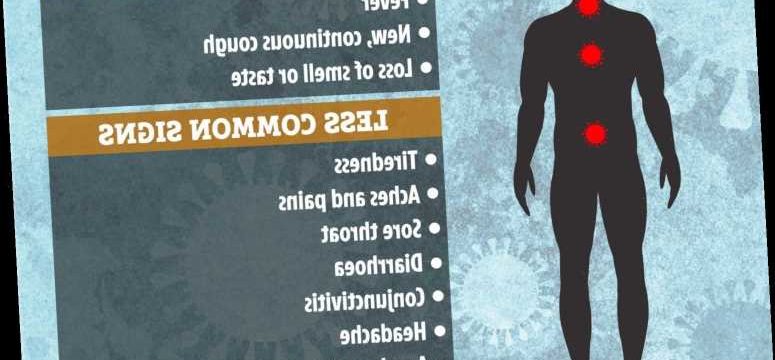IT may feel like we've been battling coronavirus for a long time now.
But the reality is that Covid-19 is still a completely new virus and experts are still working hard to understand it.
⚠️ Read our coronavirus live blog for the latest news & updates
Scientists agree that the virus affects different people in various ways and what has become clearer as the pandemic has unfolded are the signs to look out for.
The NHS lists the three main coronavirus symptoms as:
- A new, continuous cough – where you cough a lot for more than an hour, or have three or more coughing episodes in 24 hours
- Fever – where your temperature is above 37.8C
- Loss of smell or taste
According to the World Health Organisation (WHO), tiredness is also one of the more common symptoms of Covid-19.
The WHO lists the less common symptoms as:
- Aches and pains
- Sore throat
- Diarrhoea
- Conjunctivitis
- Headache
- A rash on skin, or discolouration of fingers or toes
It can take around five or six days from when someone is infected with the virus for symptoms to show, however in some cases it can take up to two weeks.
Those with mild symptoms and are otherwise healthy are advised to self-isolate and manage symptoms at home for at least 10 days to stop the risk of spreading it.
However, there are some serious symptoms to be on the look out for, according to WHO experts.
If you spot any of the following symptoms then it's best to call a doctor immediately:
- Difficulty breathing or shortness of breath
- Chest pain or pressure
- Loss of speech or movement
What are the Covid-19 symptoms in children?
While the NHS's three key symptoms apply to both adults and children, researchers have warned that there could be some other signs to be on the look out for in kids.
Data from King's College London's Covid Symptom Tracker app suggests that children aren't logging the "classic" adult symptoms.
Instead the most common signs reported in children include:
- Fatigue
- Headache
- Fever
- Sore throat
- Loss of appetite
The data is based on analysis from 198 children who tested positive and around 15,800 negative tests.
It also found that 15 per cent of kids who test positive also present with an unusual skin rash.
The app allows parents to log symptoms on behalf of their children and the app currently has data from around 250,000 kids.
It comes after experts from the Queen's University Belfast said that diarrhoea, vomiting and abdominal cramps could also be symptoms in children to look out for.
The researchers tested 992 children with the average age of 10 to see if they had recently caught coronavirus.
Around half who tested positive reported having symptoms – a fever was the most common, followed by a cough.
Gastrointestinal symptoms – such as diarrhoea, vomiting and abdominal cramps – were reported by 13 of the 68 children.
Scientists concluded that it appeared to be significantly associated with being infected by Covid-19.
Source: Read Full Article

